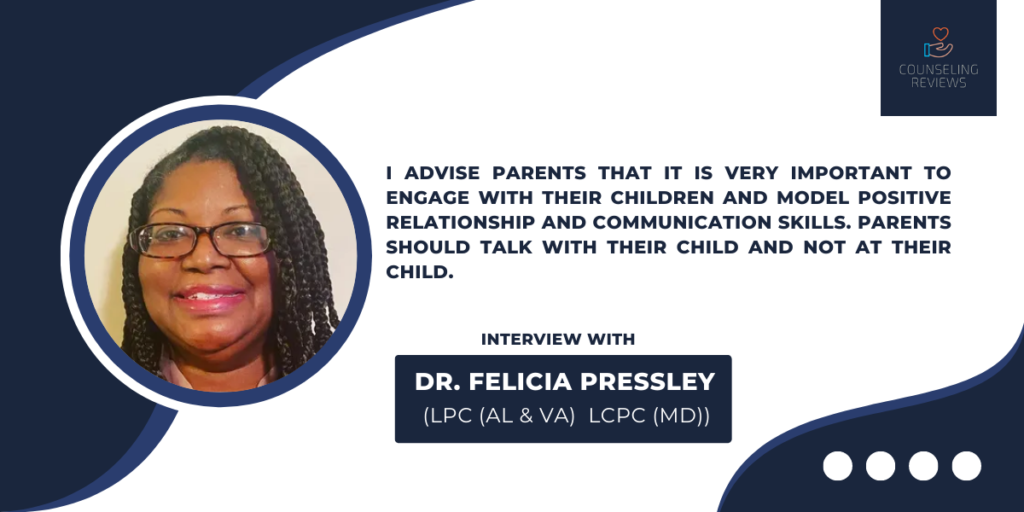The pandemic has completely changed how we view our world, and it has affected teenagers and adults alike. While teenagers have increasingly faced isolation and depression, married couples have felt their need for intimacy and privacy being eroded. Adolescents and adults have experienced increased feelings of alienation and social inadequacy. These feelings are exacerbated by frequent lockdowns, physical distancing, and insecurities related to financial planning and career-making.
As all these problems affect adolescents and adults, we decided to speak to a marital therapist and a therapist who works with teenagers. The results were quite revealing. Both teenagers and married couples face difficulties which the pandemic has exacerbated. Most importantly, neither the adults nor the adolescents have been able to cope with the drastic changes that have occurred in the last three years.
To understand the problems that teenagers face, we spoke to Dr. Felicia Pressley, who has over 20 years of experience working with teens and their families. She strives to improve their relationships and help them achieve their mental wellness goals. She has a private practice in Maryland and is a licensed professional counselor in Maryland, Virginia, and Alabama. She has previously served as a youth services coordinator working directly with teens.
To better understand how couples fare today, we spoke to Michelle Shivers, a Licensed Family and Marriage Therapist and counselor with 8+ years of experience. She is also the author of a relationship guide.
1. It’s been three years since the pandemic began. What difficulties of adults and adolescents do they face?
Dr. Pressley: What I am seeing right now with teens in therapy is the loss of coping skills when dealing with relationship issues. They also experience a higher level of social isolation, failing grades, sexting, slut shaming and poor relationship and communication skills.
Michelle: If we must talk about adults and married couples, I would say the most pressing adult problems are communication issues, ignoring boundaries, lack of sexual intimacy, and value differences. In addition, married couples who are in different life stages may experience emotional or sexual infidelity as well. I have seen them fighting about money, sharing chores, and disagreements over careers. The most disturbing aspect is continuing to be in abusive relationships, and enduring associated anxiety.
2. What are the biggest challenges that both adults and adolescents face today?
Dr. Pressley: Teenagers particularly face challenges in the areas of social media, school, job, family commitments and interpersonal relationships.
Michelle: These problems are common in all types of relationships, and not specific to adults. Communication is an issue that is the biggest challenge in all relationships. People are not ready to discuss how they feel. With respect to married couples, infidelity is the most common problem.
3. How has mental health care changed before and after the pandemic?
Dr. Pressley: Before the pandemic, the focus was on academics. Mental wellness related to social media and body image. Now, communication issues take the center stage.
Michelle: Not much has changed before or after the pandemic. We see the same problems such as communication issues, ignoring boundaries, lack of sexual intimacy, value differences, and disagreements over roles.
4. What is your advice for your clients?
Dr. Pressley: I advise parents that it is very important to engage with their children and model positive relationship and communication skills. Parents should talk with their own child and not AT their child.
Michelle: During covid, I found many cases of domestic violence and intimacy problems. Deciding who will do the household chores was their biggest challenge. Now, things have changed. I advise my clients to work on future planning, not get annoyed easily, and improve trust and security issues.
5. What is the best therapy for both adults and adolescents?
Dr. Pressley: The best therapy adult and teens can get is working with a cognitive behavioral approach or motivational interviewing approach to counseling.
Michelle: Anything that helps reduce instances of getting annoyed.
Coping Mechanisms and Resilience
In the wake of the pandemic’s upheaval, both adults and adolescents have exhibited remarkable resilience by employing various coping mechanisms. Many individuals have turned to mindfulness practices such as meditation and deep breathing to alleviate stress and anxiety.
Engaging in physical activities like exercise and yoga has proven effective in managing both mental and emotional well-being.
Moreover, fostering social connections, whether virtually, online course or safely in person, has been a vital coping strategy. Reaching out to friends, family, and support networks has provided a sense of belonging and emotional and financial support during these trying times.
Building resilience stands as a cornerstone in navigating adversity. Developing and using new skills and maintaining a growth mindset, which focuses on learning from challenges, has empowered individuals to perceive setbacks as opportunities for personal growth. Resilience is cultivated through embracing change, nurturing self-compassion, and seeking professional help when needed.
Numerous inspiring success stories have emerged from this period, showcasing the human capacity to triumph over difficulties. From career pivots to innovative virtual collaborations, these stories underscore the importance of adaptability and perseverance. By learning and sharing such strategies and stories, we encourage others to harness their innate resilience and envision a path forward amid uncertainty.
Post Pandemic therapy for adults and adolescents
The choice of therapy for both adults and young adults depends on individual needs, preferences, and the specific challenges they are facing. Cognitive Behavioral Therapy (CBT) is a widely recommended approach for both age groups. CBT focuses on identifying and modifying negative thought patterns and behaviors, offering practical tools to manage stress, anxiety, and depression. It equips individuals with lifelong coping skills.
For adolescents, Dialectical Behavior Therapy (DBT) can be effective, particularly for those students struggling with emotional regulation, low self-esteem, and relationships. DBT combines cognitive-behavioral techniques with mindfulness practices, helping teens develop emotional resilience and interpersonal effectiveness.
Another option is Family Therapy, especially when family dynamics significantly impact the well-being of adolescents. This approach helps improve communication and problem-solving within the family unit.
For adults dealing with complex trauma, Eye Movement Desensitization and Reprocessing (EMDR) is known to be beneficial. EMDR targets distressing memories and facilitates their reprocessing, reducing their emotional charge.
Ultimately, of course, the “best” therapy is one that aligns with an individual’s needs, preferences, and therapeutic goals. It’s recommended to consult mental health professionals who can assess and recommend the most suitable approach based on a thorough evaluation of the person’s circumstances.
Both adults and adolescents benefit from therapy
Both adults and adolescents are having a tough time after the pandemic. There are multiple reasons for this. We can narrow down much of it to insecurities that have arisen due to dramatic shifts in society. For example, couples have begun to experience a higher level of communication issues, lack of sexual intimacy, value differences, and lack of respect for boundaries.
On the other hand, teenagers have begun to face increased problems related to social media and body image. In addition, some unique issues that have exacerbated after the pandemic are slut shaming, sexting, failing grades, and social isolation. The panelists agree that communication skills are the key for both adults and adolescents. In addition, getting therapy when needed is another crucial factor in ensuring mental health and well-being.






